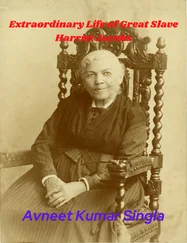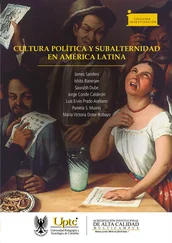There was little room to write amid the program notes and biographical information and the colorful advertisements for Unicum, salami, and banks. “Give me a pen.”
“What—?”
“Hold on,” Melanie said, and jotted down the first few notes of a simple melody, a theme. She heard it over and over, like a skipping record. More would come soon. She felt it brewing inside her. She had never composed music before, and wasn’t entirely sure that was what she was doing, but it seemed like it. The melody was both unrecognizable and as familiar as her own name. She handed the pen back to Nanette.
“What did the composer say?”
Melanie would wait until later to tell Nanette that she was leaving. “He … he thanked me.”
“Isn’t he really famous?”
“Let me get my stuff and we’ll go.”
Nanette sat and held Melanie’s violin and bow in her lap. Melanie pocketed Harkályi’s business card and exchanged her Bible verse for her case and coat. The conductor, speaking into a Magyar Televízíó microphone, gave her a look of pure evil that would make the front page of the next day’s Hírlap. Back on stage, Melanie wiped down the strings and placed her instrument into its snug little coffin. Nanette put her arm around her shoulders, and on their way out the church doors Melanie offered a silent prayer of thanks to Beethoven. He heard her. He was grateful too.
Nanette called for a taxi. The shivers running through Melanie’s spine had nothing to do with the weather.
“Get a beer?” Nanette asked, of course.
The idea didn’t appeal in the slightest, but Melanie liked the idea of finding some neutral ground to tell Nanette her plans. She didn’t want to be back in that gross apartment, unless it was to book the soonest possible flight home.
“I want to change first. Get out of these shoes. Meet you down there?”
“Baby, it’s on me tonight.”
“Totally unnecessary. I’m thrilled you made it.”
“And miss your superstar debut? Fat chance. What else did Harkaly say to you?” His mispronounced name sounded strange on Nanette’s lips, almost indecent.
“Harkályi. He said he liked my playing. That I should call him.”
“That is so cool.”
Melanie’s reflection shone in the taxi’s window. The dome of the parliament building was lit up. “You have no idea.”
The taxi stopped halfway across Margit Bridge, the traffic around it frozen into a solid brick of metal and engine noise, carbon monoxide, and car horns. It would be faster to walk home. Nanette handed the driver some cash, and they spilled out onto the sidewalk. Cold as it was, they stopped at the same observation deck they had visited late the previous night. This morning. No view of Budapest was more spectacular. Nanette stood behind Melanie and put her arms around her chest, pinning her arms to her body.
Melanie contemplated throwing her violin into the water, along with the case and the bow and everything else. A fresh start. The melody forming in her head stopped her. Though currently only eight measures long, it felt like it had been with her forever. As the sound multiplied, the notes didn’t merely arrange themselves linearly into a longer composition. They also grew horizontally, starting with a lone violin, her own, which was joined by more instruments and more tone colors. She held fast to her music case and soon heard an entire string section and percussion — urgent tribal drumming, like a work song, like those woodpeckers — until now twelve measures of a spacious orchestral work repeated in her ears again and again. It was beautiful. She couldn’t hear the entire symphony, not yet, but she felt what it would sound like. Amid the reflected lights, the river had a deep, lustrous blue color. The burst of music in her head was like an act of resistance, an antidote to the cold, most immediately, but also to Hungary. To the incestuous claustrophobia of expatriate life. To Nanette.
Melanie was humming to herself when Nan spun her around with a clanging of cameras and kissed her over and over on the lips. She was too rough.
“I’m leaving,” Melanie told her.
“I know.” Nanette had been crying too. She kissed Melanie again, even harder. Like she was angry. She was hurting her.
“I’m not leaving you,” Melanie said. It was a lie, and they both knew it. She heard the music more clearly than her own words. “I’m leaving Hungary. I have to get out of here.”
“Baby, I fucking hate this city,” Nanette said. “Let’s go somewhere else. Let’s go to Vienna, like you’ve been saying. You can’t leave. That photo I want to shoot, the iconic one — I just have this sense somehow that you’re going to be in it.”
Maybe you’ve already taken it, Melanie wanted to say, but didn’t. Leaving Budapest would be more difficult than she had hoped. “I’m going home,” she said.
“What do you mean ‘home?’” Nanette’s voice sounded like a squealing oboe, the instrument the rest of an orchestra will use to get in tune.
“Back to Boston,” Melanie said. She had work to do, work she could never accomplish living this way. She needed to call Harkályi.
Nanette wiped her running nose. “You can’t leave me here.”
Melanie stared at the water, taking in the view, with no interest in discussing what they both knew would happen next. She couldn’t wait to get into comfier clothes, to get the mask of makeup powder off her skin. Unwilling to argue, she headed back toward the Coca-Cola sign. Nanette followed her part of the way, then went into Eve and Adam’s to find a booth.
Melanie trudged up the stairs to their stinking, filthy apartment. So many steps. Her violin case swung at her side. She needed a change of clothes, and then to find Nan’s good scissors. First, though, she really needed to transcribe in her neatest handwriting the series of notes that would soon make up the main theme of her Symphony No. 1 (“Duna”).
In honor of this book’s Hungarian setting, the text has been set in Ehrhardt type, which was designed by Miklós (Nicholas) Kis. After taking religious orders, Kis traveled to Amsterdam in the late seventeenth century to learn the arts of printing, type design, punch cutting, and type casting. He not only learned these skills, he excelled, creating an amazing number of outstanding fonts during an estimated ten-year period. Then, as planned, he brought his new skills back to Hungary and printed several editions of the Bible and other religious books in the Hungarian language before his death in 1702 at the age of fifty-two. Perhaps it was because he was a humble, religious man, perhaps it was because he was a foreigner and was no longer around to claim credit, but whatever the reason, all of the fonts he created in Holland were initially attributed to other designers, including Janson and an extensive range of Greek and Hebrew fonts, in addition to Ehrhardt. Only within the second half of the twentieth century has the full range of his achievement been revealed by typographic historians. The full impact of his work on the development of Hungarian publishing and culture is still being evaluated. At Coffee House Press we lift our mug to salute the many unknown artists who contribute to our shared culture.
The coffee houses of seventeenth-century England were places of fellowship where ideas could be freely exchanged. In the cafés of Paris in the early years of the twentieth century, the surrealist, cubist, and dada art movements began. The coffee houses of 1950s America provided refuge and tremendous literary energy. Today, coffee house culture abounds at corner shops and online.
Coffee House Press continues these rich traditions. We envision all our authors and all our readers — be they in their living room chairs, at the beach, or in their beds — joining us around an ever-expandable table, drinking coffee and telling tales. And in the process of this exchange of stories by writers who speak from many communities and cultures, the American mosaic becomes reinvented, and reinvigorated.
Читать дальше












